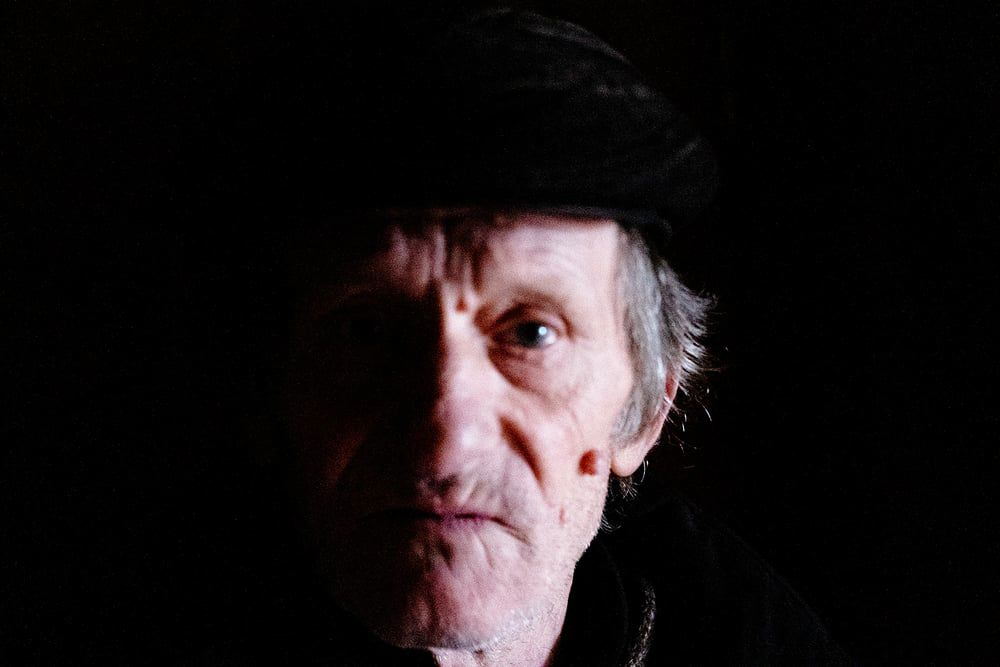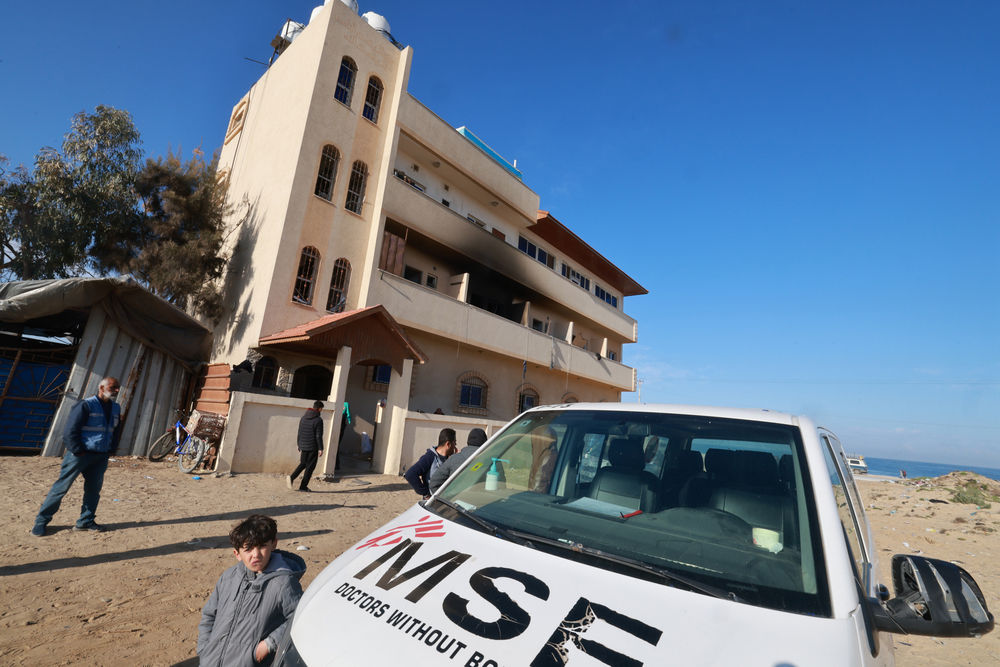“About six months ago, everything was shelled – the medical point, the pharmacy, and all the infrastructure destroyed… but it wasn’t the end,” says Liudmyla Karatsiuba. “We built houses, we strengthened our community.”
Liudmyla is a resident near Kupiansk, one of the most volatile areas on the frontline in Ukraine, in the northeast of the country.
Following Ukrainian forces’ partial retaking of the Kharkiv region in September 2022, and the frontline shifting further from Kupiansk, a Médecins Sans Frontières medical team arrived in Liudmyla's village to offer medical treatment. The shelling had left no public buildings for the team to set up a clinic, so Liudmyla agreed to let the team use her home, where they provided medical and psychological consultations to people from the entire community.
“I still follow the advice given by MSF psychologists, and I teach my neighbours the candle breathing exercise,” says Liudmyla. “It has helped me remain focused on being useful at the age of 75. Currently, I am engaged in farming and raising rabbits.”
The breathing exercise Liudmyla refers to is a simple technique used to ease stress and anxiety. MSF mobile teams in Ukraine have shared breathing exercises that can be easily passed on to people as part of their work to treat and raise the profile of mental health care. The same teams worked with Liudmyla’s community to rebuild the only local medical point.
"Our medical centre is now among citizens referred to as the “museum”, because it’s so new. Now there’s somewhere to go when we need treatment or medicine." says a smiling Liudmyla.
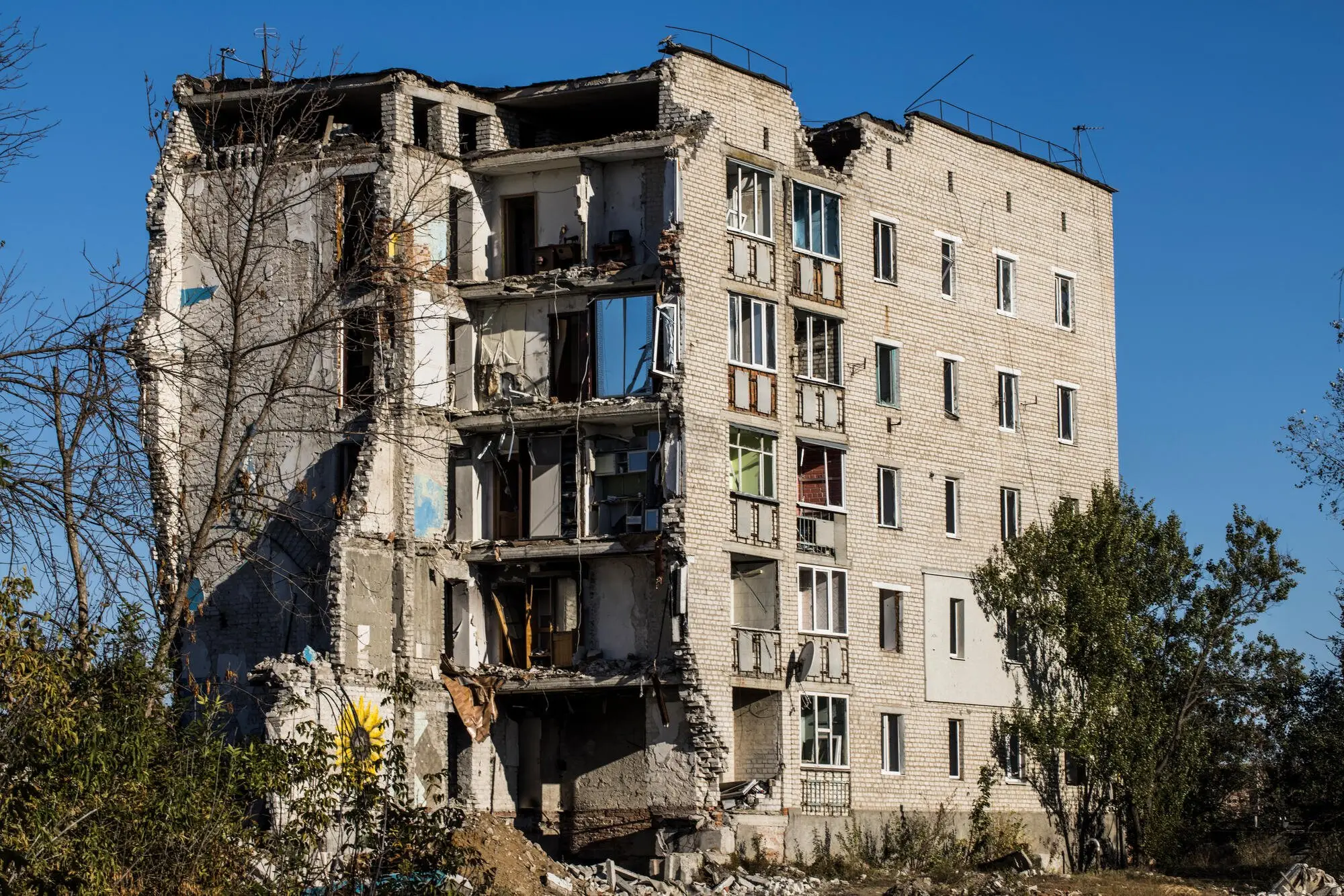 © MSF
© MSF
Since the dramatic escalation of the war in February 2022, MSF has been conducting mobile clinics in the adjacent regions. “Most of our patients have been women over the age of 60, many of them suffering from chronic diseases like hypertension and diabetes.” says Maksym Zharikov, MSF deputy medical coordinator in Ukraine. “While some were evacuated, others either couldn’t leave, or chose to remain in their communities. The urgent need remains to provide medical services to patients residing 20-30 kilometres from the frontlines.” This trend has been a constant since the war began in 2014; villages near the frontline dwindle, with fewer supplies in the markets and medical centres, and fewer people. However, following the war’s escalation, nearly 10 million people are displaced today, either inside Ukraine, or as refugees abroad.
Organisations like MSF have been able to support some of these communities with supplies, medical care and reconstruction. However, more often it is the communities themselves, with the aid of local volunteer organisations, that carry out this work. In the last two years, it has become increasingly difficult to reach areas cut off by fighting or close to the frontlines.
Today, MSF runs mobile clinics in 100 different towns and villages near the frontline in the Donetsk, Kharkiv, and Kherson regions. These clinics usually comprise a therapist, a psychologist, a medical doctor, and a social worker.
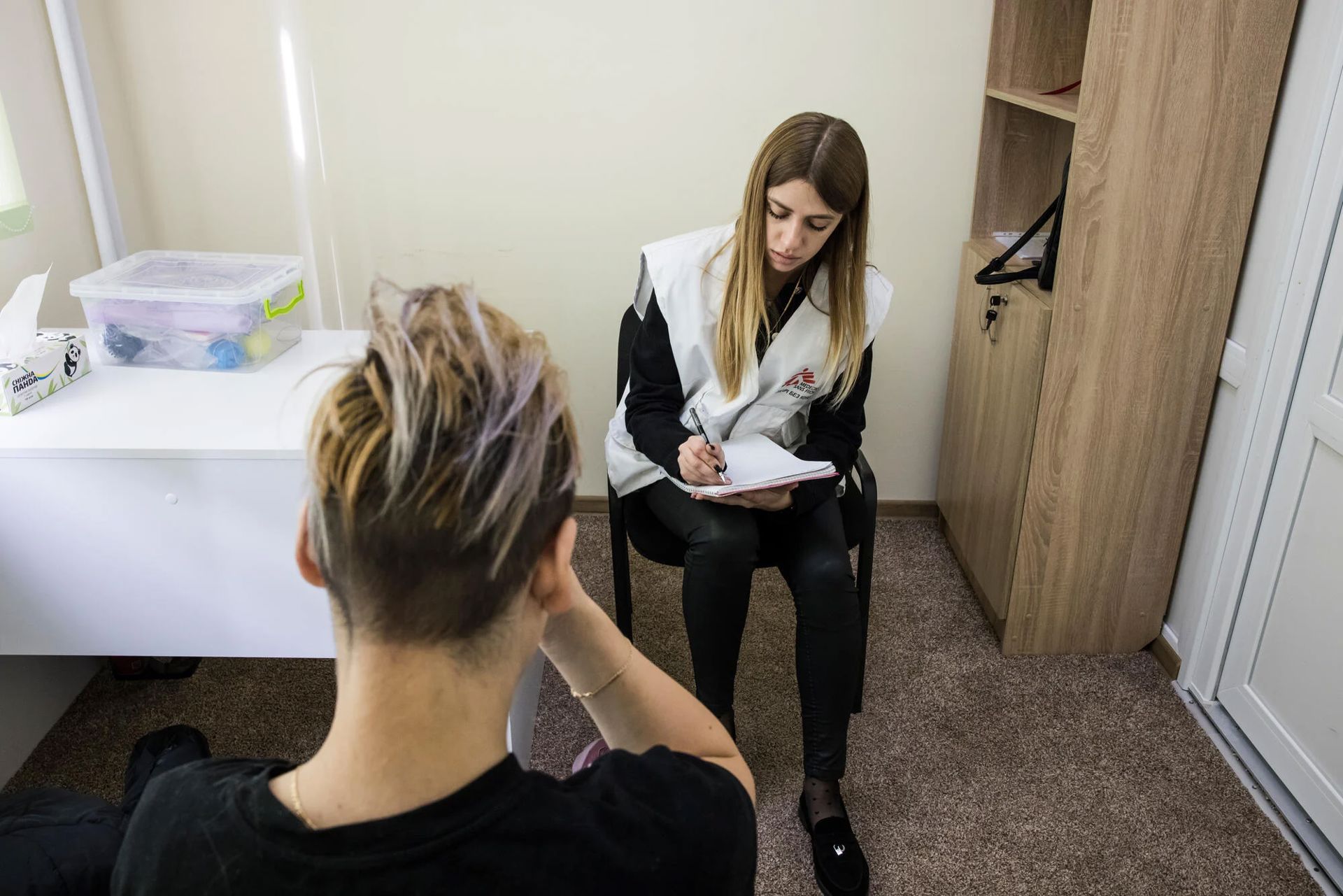 A mental health patient sits in consultation with an MSF psychologist. Ukraine, October 2023. © NURIA LOPEZ TORRES
A mental health patient sits in consultation with an MSF psychologist. Ukraine, October 2023. © NURIA LOPEZ TORRES
Psychological support during war time in Ukraine
Olena, the mother of 9-year-old Vania, has been living in a shelter for displaced people in Kirovohrad region for over a year with her two children after fleeing war in Donetsk region. Vania began to have trouble sleeping, particularly after shelling. After a team of MSF psychologists began conducting group play sessions for the children at the shelter, Olena felt that Vania’s anxiety was diminishing; he was able to go back to school and made new friends.
“However, sudden loud noises and conversations about the war can trigger a sudden change in his condition,” Olena explains.
In the last two years in Ukraine, Médecins Sans Frontières has provided 26,324 individual psychological consultations. In shelters for internally displaced people, the main group of patients consists of mothers with children.
“At the onset of the escalation, we observed symptoms in children such as anxiety, panic attacks, and fear,” says Alisa Kushnirova, an MSF psychologist. “However, we now notice that children have begun to perceive the abnormal situation as normal.”
Our teams provide psychological support to families, including adults; the mental health of adults is key in maintaining a positive psychological environment within the family, as parents’ condition is often reflected in children.
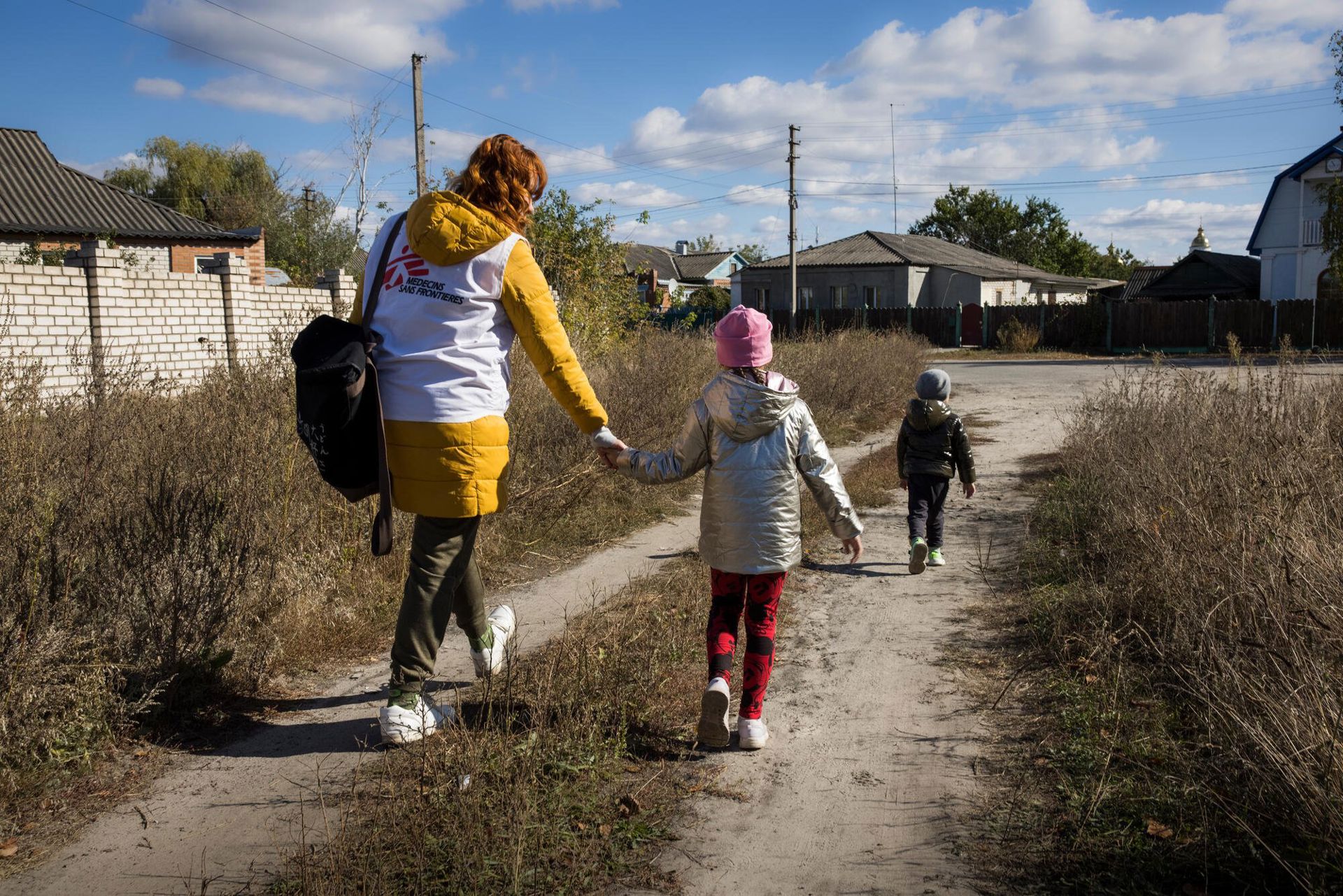 After therapy sessions, an MSF psychologist accompanies children to school. © MSF
After therapy sessions, an MSF psychologist accompanies children to school. © MSF
MSF emergency evacuations and early physical rehabilitation
“On 18 April 2023, I lost my leg,” says Tetiana Doloza. “The market where I worked as a salesperson in the city of Ukrainsk, was hit by missiles, and I was severely injured.”
It’s been 10 months since Tetiana lost her leg. Today, she walks in Kyiv with confidence, relying on a prosthetic limb and crutches for support. Tetiana was evacuated from the market to a hospital and transported by an MSF medical train to the Lviv region
“When MSF doctors took me to the hospital in the west of the country, I felt lost. I didn't know how I would cope with an amputation,” says Tetiana. “Now, with a prosthetic limb, I live in Kyiv with my son, and at 72 years old, I am happy to have survived.”
“Between March 2022 to December 2023, MSF’s medical evacuation train transported 3,808 patients, 310 of whom were in critical condition,” says Albina Zharkova, MSF project coordinator. “In 2022 and early 2023, the evacuation train was essential for referring people to safer locations and hospitals for treatment. Now the needs have shifted, and our ambulances are the ones doing shorter referrals.”
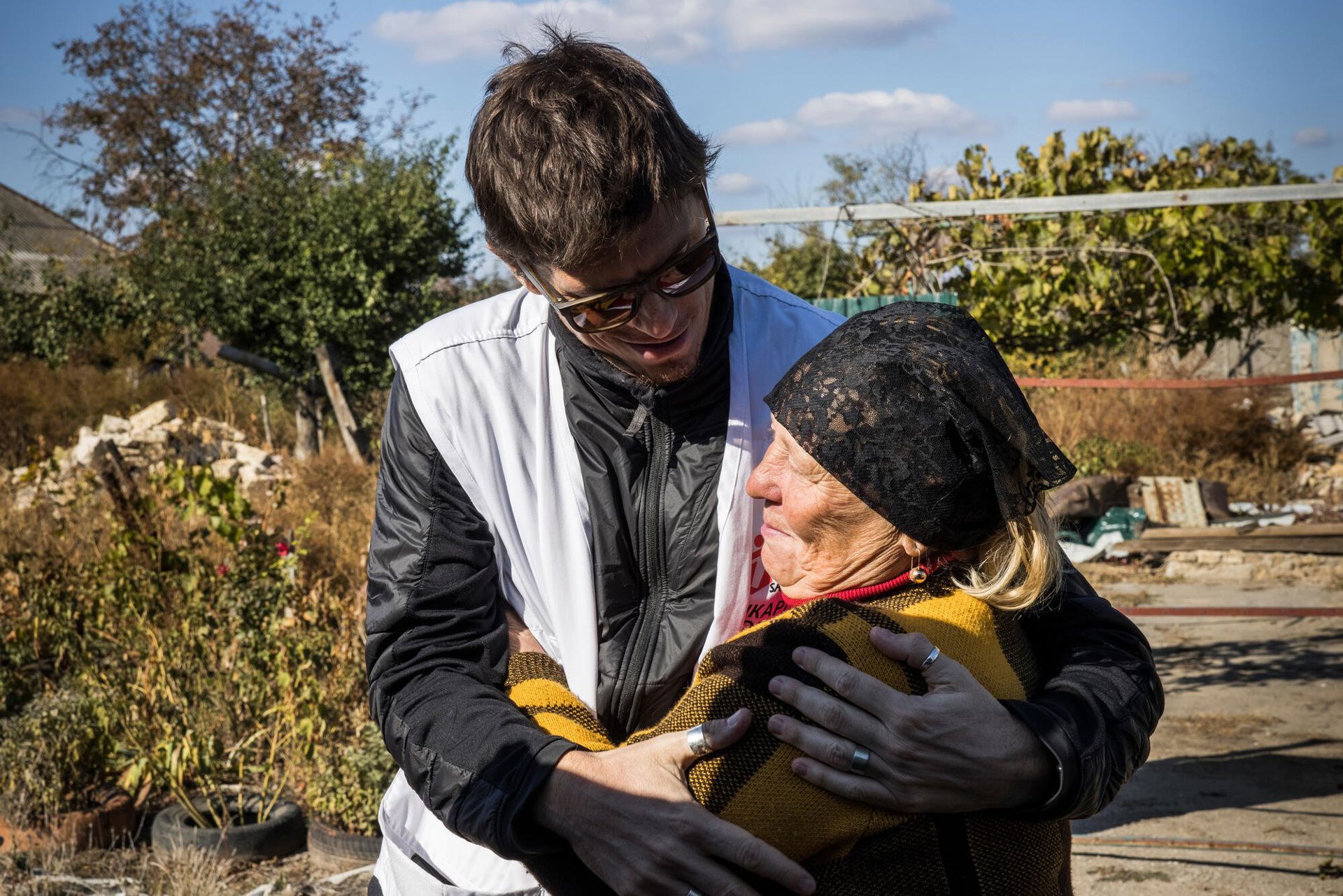 An MSF mental health staff member offers comfort to a patient from Kobzartsi. Ukraine, October 2023. © NURIA LOPEZ TORRES
An MSF mental health staff member offers comfort to a patient from Kobzartsi. Ukraine, October 2023. © NURIA LOPEZ TORRES
Today, due to a change in the war’s dynamic, patients are now staying in eastern Ukraine, rather than being referred to the west. But our teams continue to operate 15 ambulances that refer people wounded by the shelling or chronically ill patients to medical facilities farther away from the front.
As international attention on the humanitarian consequences of the war in Ukraine diminishes, the fighting on the frontlines remains as devastating as ever. From 2014 to 2022, more than 14,000 people were killed. Since February 2022 this number has multiplied, with hundreds of thousands wounded physically and psychologically, and almost 10 million people displaced.


